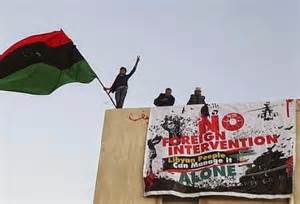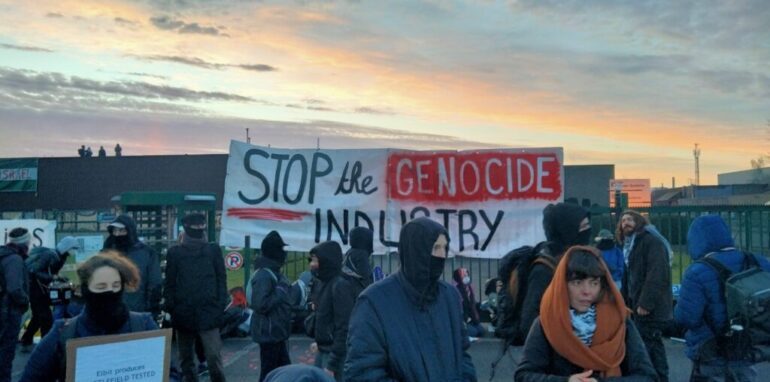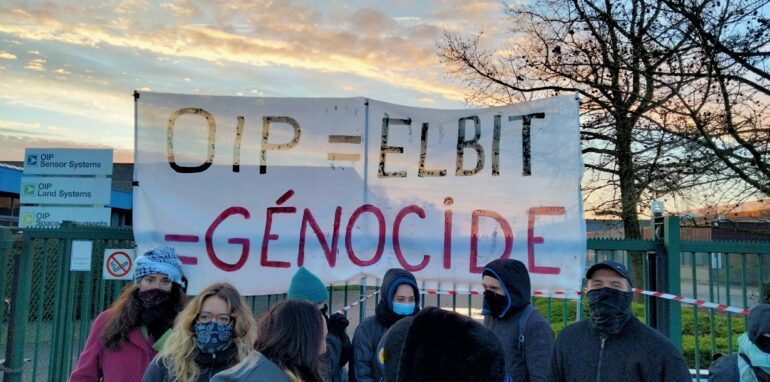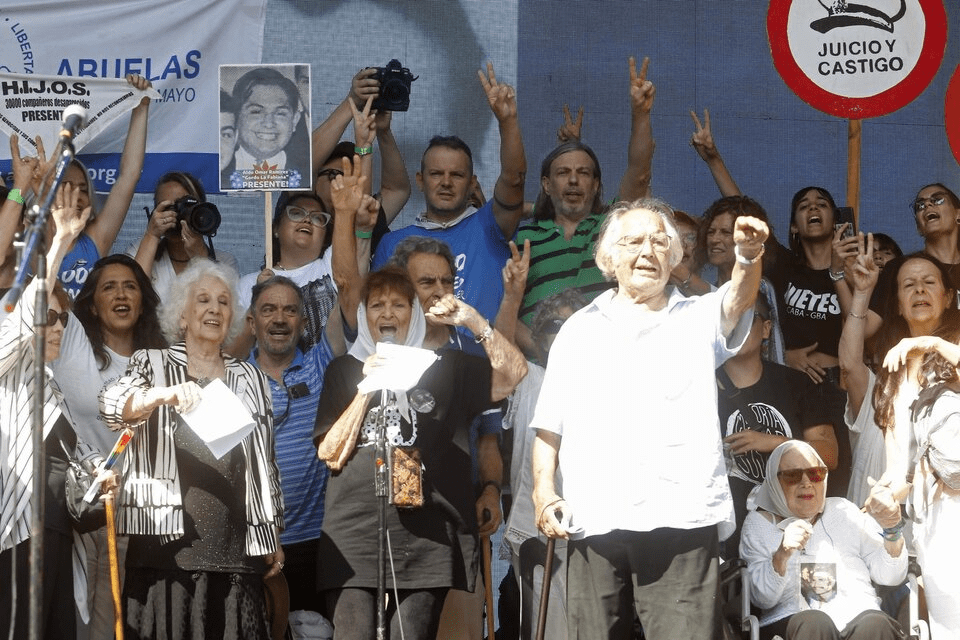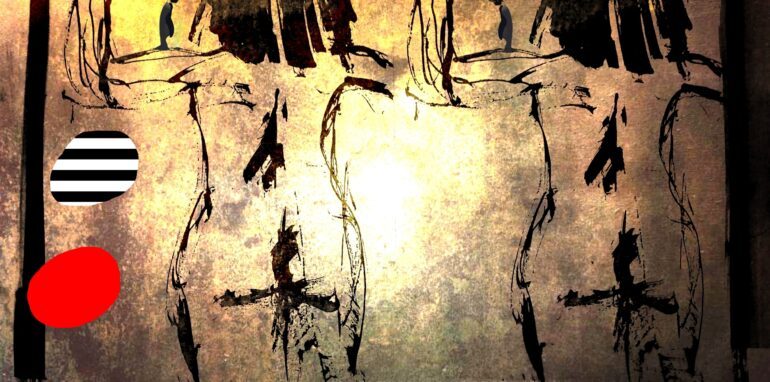Nu heeft de NAVO 3 tv-satellieten gebombardeerd in Tripoli om de Libische regering tot zwijgen te brengen, hierbij zijn drie journalisten van de Libische tv omgekomen. Dit lijkt me een ernstige schending van de mensenrechten namelijk het recht op vrije meningsuiting en het recht op vrije media. De NAVO wil de waarheid verbergen en de grote steun van de Libische bevolking voor haar regering verzwijgen, alsook de gedode burgers onder NAVO bommen en de impasse in Libië . Wat een schande voor de NAVO, ondanks haar onmetelijke macht is ze laf, immoreel en achterbaks.
Nu is het de NAVO die de Libische bevolking bedreigt en die de rebellen aanspoort om steden aan te vallen en dus burgers te doden.
Na 4 maanden van brutale bombardementen tegen Libië zit de NAVO in een impasse wat aantoont dat ze een fout gemaakt heeft en zich vergist heeft, namelijk dat ze de steun van het Libische volk voor de regering sterk onderschat heeft.
Daarbij komt nu nog het vermoorden van Abdel Younes, de militaire chef van de rebellen, door een fractie van de rebellen zelf namelijk door de islamitische fundamentalisten. Dit zal waarschijnlijk een grote spanning tussen de verschillende fracties van de rebellen teweeg brengen wat hun kracht verder zal verzwakken.
De NAVO zit in de rats maar blijft gewoon bombardementen tegen het Libische volk uitvoeren om de eer en glorie van Sarkozy, Cameron en Obama te redden, wat ik zeer misdadig vind.
De NAVO zal “met alle mogelijke middelen” haar kolonialistische wil opdringen aan Libië, inbegrepen een mogelijke genocide onder de bevolking van Tripoli en Sirte en een militaire bezetting van Libië.
Published on 29 Jul 2011
Commander killed by fellow revolutionaries
The National Liberation Army’s (NLA) military commander was killed by his comrades while in custody after he was arrested by the National Transitional Council (NTC) leadership on suspicion of treason, witnesses said today, in a sign of disarray that posed a major setback for the movement battling Muammar Gaddafi.
Abdel Fattah Younes, NLA Military Commander, previously Gaddafi’s interior minister was shot dead by assailants yesterday.
The slaying of Abdel-Fattah Younes raised fear and uncertainty in Benghazi. Thousands marched behind his coffin, wrapped in the tricolor pre-Gaddafi era flag, to the graveyard for his burial, chanting that he was a martyr “beloved by God.”
Troops fired a military salute as the coffin arrived, and angry and grieving supporters fired wildly into the air with automatic weapons.
At the graveside, Younis’ son, Ashraf, broke down, crying and screaming as they lowered the body into the ground and — in a startling and risky display in a city that was the first to shed Gaddafi’s rule nearly six months ago — pleaded hysterically for the return of the Libyan tyrant to bring stability.
“We want Muammar to come back! We want the green flag back!” he shouted at the crowd, referring to Gaddafi’s national banner.
Younes’ slaying appeared to shake both the NTC, and its Western allies, who have heavily backed the control over most of eastern Libya.
Two weeks ago, 32 nations including the U.S. made a major commitment by formally recognizing the NTC as the country’s legitimate government — a significant boost after many allies hesitated in part because the NTC, a mix of tribes and factions, were largely an unknown quantity.
Those Western worries will likely be deepened if Younes’ slaying opens major splits among the fractious revolutionaries. Divisions would also weaken the opposition’s campaign to oust Gaddafi, which has largely stalled in a deadlock despite the four-month-old NATO bombing campaign against Gaddafi forces.
In Washington, State Department spokesman Mark Toner said the circumstances of Younes’ death remained unclear, but he pressed the NTC to shore up any cracks in their front against Gaddafi.
“What’s important is that they work both diligently and transparently to ensure the unity of the Libyan opposition,” Toner said.
Younes’ body was found yesterday, dumped outside Benghazi, along with the bodies of two colonels who were his top aides. They had been shot and their bodies burned.
Younis was Gaddafi’s interior minister until he defected to the rebellion early in the uprising, which began in February, bringing his forces into the revolutionary ranks. His move raised hopes among the revolutionaries and Western allies that the uprising could succeed in forcing out the country’s ruler of more than four decades. But some revolutionaries remained deeply suspicious that he retained loyalties to Gaddafi.
The NTC says it is investigating the killing. It blamed unidentified “gunmen” and has made no confirmation that Younes had been arrested.
It has said only that Younes was gunned down on route to Benghazi, where he had been summoned to discuss “a military matter.”
“Everything is under control,” the council’s finance minister, Ali Tarhouni, told reporters last night. “This is just a rough stage we are going through and me and my brothers in the NTC are sure we will get over it.”
But a NLA special forces officer under Younes’ command told The Associated Press that Younes was taken before dawn three days ago from his operations room at Zoueitina, just east of the main front with Gaddafi’s forces.
Fighters from a revolutionary faction known as the February 17 Martyr’s Brigade came to the operations room and demanded Younes come with them for interrogation, said the officer, Mohammed Agoury, who said he was present at the time.
Agoury said he tried to accompany his commander, “but Younes trusted them and went alone.”
“Instead, they betrayed us and killed him,” he said.
The February 17 Martyrs Brigade is a group made up of hundreds of civilians who took up arms to join the rebellion. Their fighters participate in the front-line battles with Gaddafi’s forces but also act as a semi-official internal security force for the NTC. Some of its leadership comes from the Libyan Islamic Fighting Group (LIFG), an Islamic militant group that waged a campaign of violence against Gaddafi’s regime in the 1990s.
An officer with the official security force of the National Transitional Council — told AP that the council ordered Younes’ arrest after a letter arose earlier this week connecting the commander to Gaddafi. But he suggested the killing had not been authorized by the council and was instead an act of vengeance by revolutionaries.
He said Younes was brought back to the Benghazi area three days ago and held at a military compound until two days ago, when he was summoned to the Defense Ministry for questioning.
As they left the compound, two men from the security team escorting the detainees opened fire on Younes from their car with automatic weapons, said the officer, who was at the compound and saw the shooting. He said the two men were members of the February 17 Martyrs Brigade and shouted that Younes was a traitor who killed their father in Derna, an eastern town that was once a stronghold of the LIFG.
“The men’s leader was shouting, ‘Don’t do it!’ but they shot Younes and his two aides, and took their bodies in their car and drove away,” the officer said. He spoke on condition of anonymity because he was not authorized to discuss the events.
Officials from the NTC could not immediately be reached for comment on the witnesses’ version of the events.
Agoury said the Martyrs Brigade had an agenda against Younes, because while with the regime he was involved in the bloody crackdown that crushed the LIFG.
“They don’t trust anyone who was with Gadhafi’s regime. They wanted revenge,” Agoury said.
A member of the Martyr’s Brigade said his group had evidence that Younes was a “traitor.” He told the AP that “the evidence will come out in a few days.” The brigade member spoke on condition of anonymity because he feared reprisals.
From Tripoli, Gaddafi’s deputy foreign minister, Khaled Kaim, said that Gaddafi’s forces had no role in Younes’ death. He called for a forensic investigation of Younes’ remains, saying that even though he was a “traitor” to the Gaddafi government “he was still a Libyan citizen.”
The city of Benghazi woke up to fierce shooting yesterday, as the news of Younis’ death spread confusion and suspicion. Among those firing were members of Younes’ powerful Obaidi tribe.
Britain, one of the major participants in NATO’s anti-Gaddafi bombing campaign, condemned the killing, but was cautious in its response.
“Exactly what happened remains unclear,” said Foreign Office Minister Alistair Burt. He said he had spoken to the NTC’s political leader, who had stressed that “the killing will be thoroughly investigated.”
“We agreed that it is important that those responsible are held to account through proper judicial processes,” Burt said.
NATO spokeswoman Carmen Romero said the alliance had no comment on the incident.
France, another key member of the anti-Gaddafi alliance, said the French had not received any new operational orders from NATO since the death was announced. He suggested that a single individual’s absence would not signal a major shift, saying the operation was based on a U.N. mandate “and it does not let individual people feature in the game.”
France’s Le Monde newspaper took a harsher view, warning that the NTC’s version of events “is hardly reassuring” and gives reason “to doubt the capacity of the council to exercise power.”
Short URL: http://english.libya.tv/?p=8504
